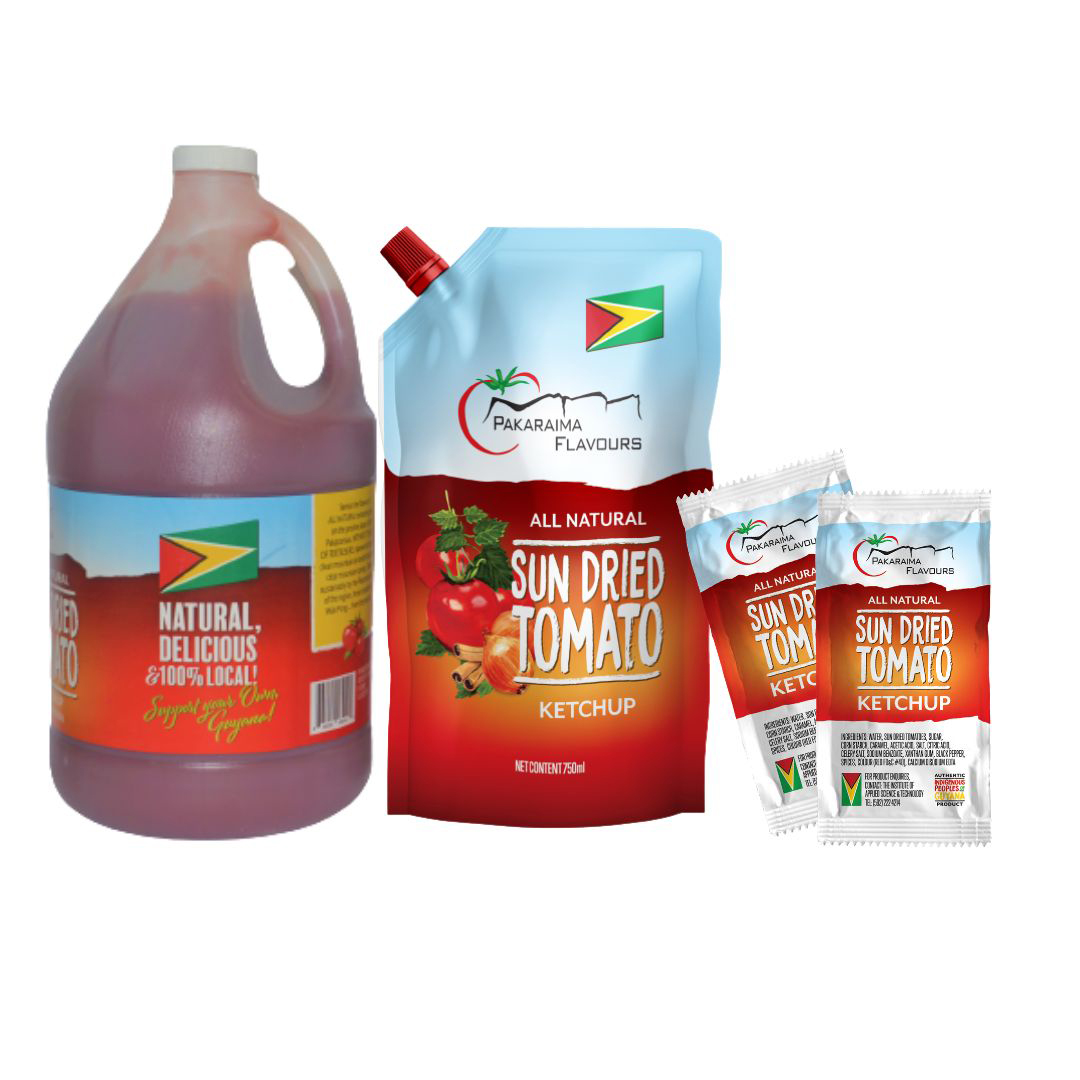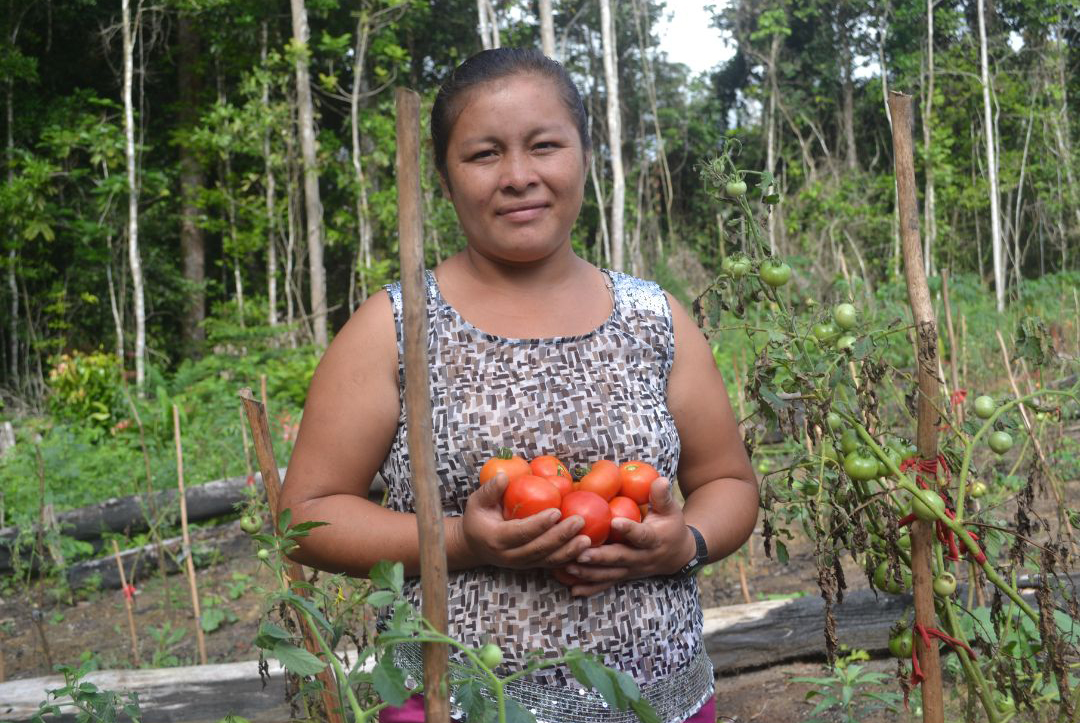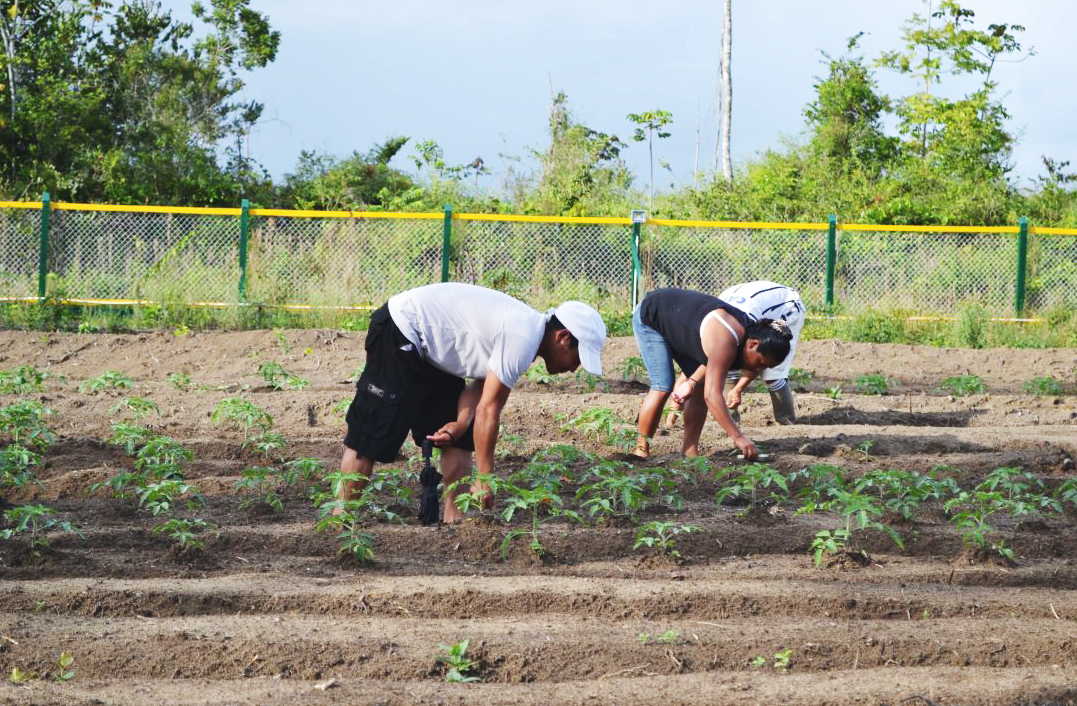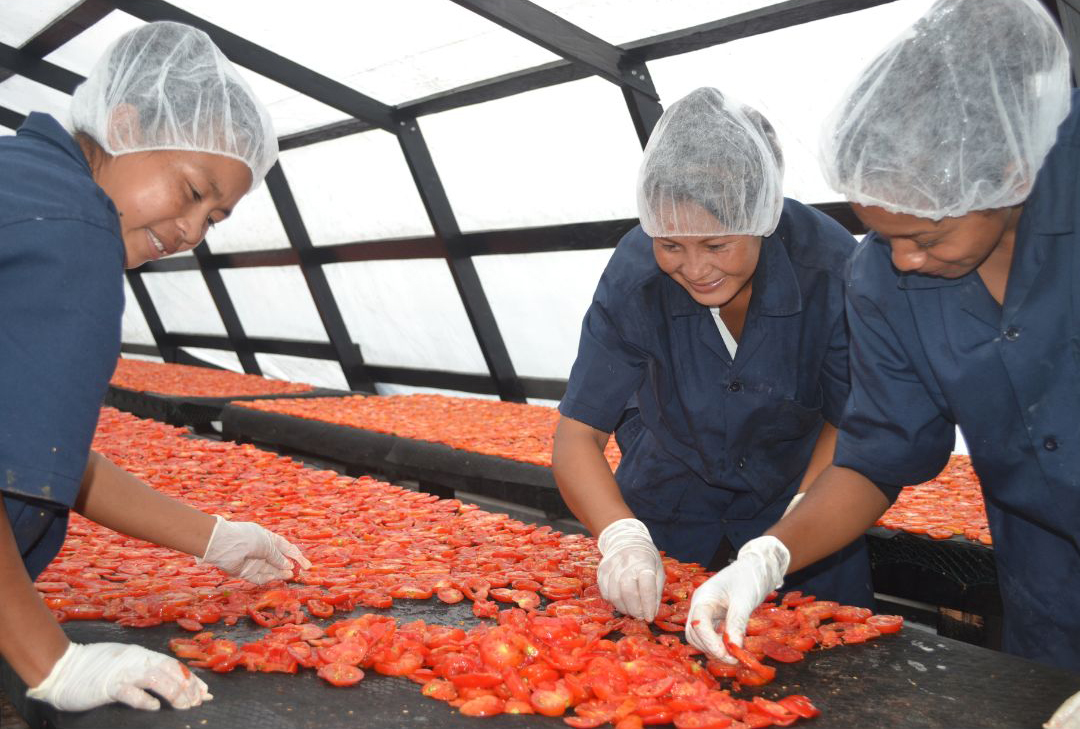By Subhana Shiwmangal
More than four years after they began producing tomatoes for ketchup, Paramakatoi farmers continue to benefit from the profit generated based on arrangements with the Institute of Applied Science and Technology (IAST) and even amid the COVID-19 woes and planting challenges.
Over the years the planting and production of tomatoes increased incrementally from 7,000 lbs of tomatoes to more than 33,000 lbs per crop in the Region Eight indigenous community, based on the increased demand for the product. IAST is aiming to have every farmer move to year-round planting rather than planting seasonally.
In recent months, the sundried tomatoes ketchup was off of store shelves due to the setbacks farmers faced from a drought and floods that severely affected the crops that were planted to meet the expected increase in demand for 2022. Fortunately, crops are being reaped this year and production of the ketchup under the brand – Pakaraima Flavours – is up and running.
Raveena Mangal, Head of Department of Marketing and Sales at IAST told Stabroek News in an interview that, currently, because of the high demand for the sundried tomato ketchup, the product is only available for bulk purchase. It comes in various sizes like the 1 gallon bottle, half gallon packages and single-use 3 oz sachets. Part and parcel of the high demand is the price of the product and as the project is vertically integrated, the brand has been carefully managed to keep the products at a competitive price.
She said that the 360ml bottle ketchup has been discontinued since IAST is moving to the 750ml `spouch’ to offer better value and convenience to consumers. She said that the Pakaraima Flavours brand does however have a well-designed 750ml ‘spouch’ package which it has not yet formally introduced to the general market, but which has been well received during marketing trials. She added that the brand is eagerly working on building their supply chain, by moving from seasonal planting to year-round planting, to be able to have a steady supply of their mountain-grown, all natural tomatoes.
IAST and the National Agricultural Research and Extension Institute (NAREI) have also determined the variety of tomato that would give the farmers the highest yields and which would be best suited to the project without compromising on its promise to be grown all naturally and using indigenous traditional methods. Over the years, the Mongol tomatoes have yielded good production compared to the Mana variety that was tried.
NAREI had spearheaded the cultivation of 25,000 tomato seedlings for the initial crop.
Some local businesses that have supported the Pakaraima Flavours’ sundried tomatoes products are the Bistro Restaurant, Madina’s Halal Restaurant, Pyramid Restaurant, M&M Snackettes, Tasty Dish and Jade Wok.
The Project was initiated by the IAST and the then Ministries of Indigenous Peoples’ Affairs and Social Protection to create transformative food processing projects in the hinterland regions for the benefit of the indigenous people. After consultations with the residents of the communities, IAST recommended that a solution could be the solar drying and preservation of crops right within the Potaro-Siparuni region, so that they could then be transported over the long periods that road transport requires without spoiling.
Tomatoes were chosen because they do not require significant capital expenditure to cultivate and could be dried. The funding for the project came from the Government of Guyana through the Ministry and the Canadian High Commission with technical support from IAST, NAREI and the Board of Industrial Training. The primary products are the ketchup and salad dressing.
A co-operative approach to the project was taken by the farmers of the North Pakaraimas. This entailed diffusing the risks to farmers, enabling volume supply and embracing full economic flow back to the members.
Challenges such as lack of capital investments in the hinterland, agro-processing, water management, absence of farm to market roads, distant markets and no access to power for post-harvest processing were focused on.
The venture allows the farmers to add 2-3 times the market value to their produce. Further, the gross profit goes back to the farmers in the cooperative and as the project is a vertically integrated one which has eliminated the middle man, it allows for the farmers themselves to gain the most from it.
Luelyn Sandwell, one of the farmers in the Paramakatoi area benefiting from the project told Stabroek News in an interview over the phone that “we don’t have job opportunities, only the teaching profession and in health. But other than that we don’t have jobs that we can apply to”. She added that farmers benefited from the Pakaraima Flavours project since many of them were unemployed and being farmers of other crops they didn’t have access to markets.
She noted that they were very excited when they got their first payments in 2017. Sandwell said that parents could have afforded to buy toys, books and other supplies for their children. She added: “And that was our first experience cause some of us who never had a job, who never saw money so much in our hands, we were able to have that satisfaction that we worked for it.” She said that the youths are also being employed at the tomato processing plant and in the harvesting of tomatoes and this has provided a lot of help to families.
She said that adverse weather contributed to lower production last year since their two farming seasons are March and October. To fight dry conditions they have been provided with irrigation assistance by the Ministry of Agriculture and she said “in that way we have managed this particular year to have our production at its highest.”










